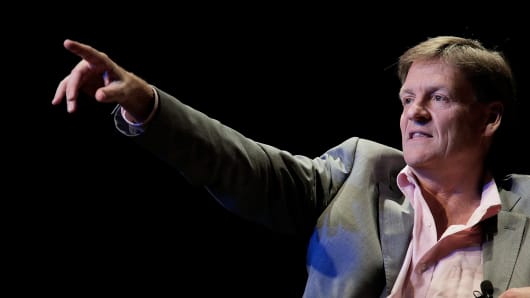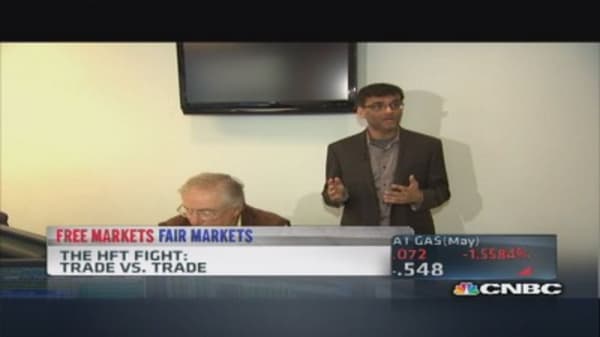
Getty Images
Michael Lewis' latest book, 'Flash Boys: A Wall Street Revolt,' tells the story of the Canadian banker who uncovered the underhanded and illegal practices carried out by some high-frequency traders on Wall Street.
Suddenly, however, important market participants have begun to speak up and voice their opinions on high-frequency trading, and many have come to its defense. For instance, Clifford Asness and Michael Mendelson, both principals at AQR — the kind of institutional investor Mr. Lewis claims high frequency traders are cheating — wrote in the Wall Street Journal: "How do we feel about high-frequency trading? We think it helps us." Dozens of diverse industry voices, from commodities trader Dennis Gartman to prominent market researcher and strategist Larry Tabb, have agreed.
Wall Street is a data-driven industry, which is a problem for Mr. Lewis, because he provides almost no data in "Flash Boys" to back up his incendiary claims. The result has been a groundswell of opinion rarely seen on the Street, which brings me to the second reason I'm grateful for the publication of "Flash Boys." Now that many of us have banded together, the industry can talk about something that really matters to the financial markets: stability.
Read MoreDefending the NYSE 'dinosaurs': Kenny Polcari
The modern market is far from rigged, but it's also far from perfect. Today, virtually all trading is electronic — a fact that not many everyday investors fully appreciate. In this all-digital marketplace, human error and technical meltdowns are a real concern. Incidents like the "flash crash" of 2010 (which the SEC determined was caused by human rather than machine error), the botched Facebook IPO, and Knight Capital's implosion, while rare, demonstrate the need for regulations that strengthen the marketplace and prevent these sorts of shocks and stresses.
In response to these incidents, the SEC has massively enhanced its market surveillance techniques to increase transparency and stability. For instance, their new MIDAS system provides real-time market tracking and analysis available through the SEC's website. The SEC has also proposed new regulations to increase the technical stability of the equities markets. Now, thanks to the publication of "Flash Boys," more people on the Street are discussing issues of transparency and stability than ever before. Mr. Lewis has given the industry and regulators a golden opportunity to improve the marketplace.




